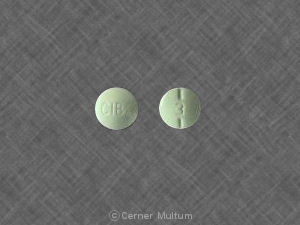The Overprescription of Medications and ADHD
You are sitting, relaxing, and watching your new favorite TV show. The show you are watching is about Mars, it’s a new show about an innovative company named “SpaceX”, and their plan they have come up with to colonize Mars. Just as you are starting to understand how small you are in the massive scheme that is humanity and the universe, the show transitions to a commercial. The first scene is of a woman tossing and turning in bed, then it transitions to a man submerging himself into a bathtub. Over the scenes plays a song by Rozalla called “Everybody’s Free”. The artist sings “I know you’ve been hurting but I’ve/been waiting to be there for you… Everybody’s free/to feel good”. The last scene in the commercial shows the Earth spinning, and eventually the Earth begins to turn and reveal that it is a massive pill. To end it all off, the word “Prozac” appears- an antidepressant drug.

No I'm not against anti-depressants, this was just a good example of a prescription drug commercial.
We live in a society that has come to glorify mental illness and overprescribe drugs, that needs to change. When drugs are prescribed to a young person, specifically for a reason like depression or ADHD, their brain development can be negatively affected and make whatever symptoms they may have become worse. We need to shift our way of dealing with mental disorders to one that is conquered by therapy and words, and we must end the glorification of prescription drugs and seek alternative methods of fighting mental disorders.
The reason I have chosen to talk about this topic is because I feel I have been directly affected by pill peddling of the big pharmaceutical companies. When I was in second grade, I was diagnosed with ADHD and was prescribed methylphenidate, otherwise know as ritalin. According to a study published by the Journal of Neuroscience, “Methylphenidate works in the treatment of attention deficit hyperactivity disorder by increasing levels of dopamine in children’s brains” (Gottlieb).

Dopamine chemical structure
Dopamine is a chemical that is produced in your body which is associated with the reward center of your brain. When dopamine levels are high, you are most likely doing something which you enjoy, so naturally you can stay focused on that task for longer. The same study states, “After taking methylphenidate, an arithmetic problem might become more interesting to a child who is normally turned off by math” (Gottlieb). All of these stipulations might sound great and beneficial, but there have only been few studies on the long term effects of this drug, and there have been absolutely no studies of the long term effects on children and their brain development. However, there have been studies on adults that give us some valuable insight.

This is the 10mg pill that plagued many high school careers such as mine.
In this study, the participants have been diagnosed with ADHD, but have never been treated. Their median age was around thirty years old and all came from a similar socioeconomic background. Before treatment began, scans of the availability of dopamine transporters in the subjects’ brains were taken, the controls and those with ADHD showed no significant difference. The subjects were then prescribed the drug, they were to take it daily for a year. After that year, the subjects returned and their brains were scanned again. The scientists found something interesting, “Here we report an upregulation of DAT secondary to long-term treatment with stimulant medication, which could result in further decreases in dopaminergic signaling when the individual with ADHD is not medicated… this could result in more severe inattention and the need for higher doses of medication” (Wang). In other words, they found that there seemed to be a higher availability of dopamine transporters, which resulted in lower levels of dopamine in the brain while the subject was not medicated. The drop in dopamine levels means that it is harder for the subject to focus on the task at hand; prolonged use of methylphenidate has exacerbated the symptoms of ADHD. We must find a new way to treat ADHD, especially in children.

This kid gets it.
Here lies the biggest problem to present; there are alternative ways to treat things such as ADHD and other non-life threatening disorders, yet they are overshadowed in favor of writing a prescription. Behavioral therapy has been proven to be effective in children with ADHD, but that does not benefit the pharmaceutical company and is not the first line of treatment, so it is atypical for most people to take that route. We must educate people that there are other options than taking a pill to fix their problems. For example, children with ADHD should be taught skills that help them remain on task, including working in moderation, different study skills, and tools for self-motivation. If we were to instead treat things like ADHD as though the subject could be trained to overcome their issues, we would see much better results and much happier subjects in the long run.

So happy they will want to get their friends together and jump!
We must shift our perception of how we deal with mental disorders. Pharmaceutical companies will not like these ideas, but we must fight against pill peddling, overprescription, and the glorification of mental disorders. If we do not take action soon, and educate the masses about alternative treatment, our society will go further down the road of chemical dependence. Instead, we must develop new techniques and strategies in order to combat these various mental disorders. Society as a whole can begin to wean off of prescription drugs and end our infatuation with chemical dependence, all we need is everyday people like you and I to encourage ourselves, families, friends, and anyone else we might surround ourselves with to make a dedication to shifting their perception of drugs and mental disorders.
Works Cited
Gottlieb, Scott. “Methylphenidate Works by Increasing Dopamine Levels.” BMJ :
British Medical Journal 322.7281. 3 Feb 2001. Web. 17 Nov 2016.
Wang, Gene-Jack, et al. “Long-Term Stimulant Treatment Affects Brain
Dopamine Transporter Level in Patients with Attention Hyperactive
Disorder.” PLOS ONE 8.5. 15 May 2013. Web. 17 Nov 2016.
Hi! I agree with what you are saying! I think we need to start thinking real hard about intervention methods that can actually help children in the long term! Ritalin and other chemical drugs is a quick fix for the teacher, but I believe it can cause a lot of harm to the individual.